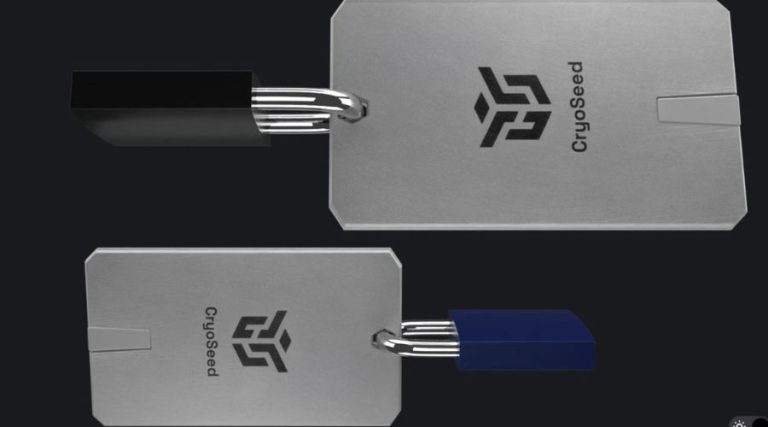
Smart Contracts and the Future of Voting: Exploring the Potential of Blockchain-Based Voting Systems
With the increasing adoption of blockchain technology across various industries, there has been a growing interest in its potential use cases in the voting sector. Blockchain-based voting systems have the potential to revolutionize the way we vote, making the process more secure, transparent, and efficient. In this article, we’ll explore the concept of smart contracts and how they can be used in voting systems to create a more democratic and trustworthy process.
As the world continues to shift towards a digital economy, the adoption of blockchain technology has grown exponentially. Blockchain technology is a decentralized digital ledger that allows for secure, transparent, and tamper-proof transactions. One of the most promising applications of blockchain technology is its use in voting systems. The current voting system faces various challenges, including security breaches, hacking attempts, and human errors. Blockchain-based voting systems offer a potential solution to these challenges by creating a more transparent and secure process.
The Benefits of Blockchain-based Voting Systems
Blockchain-based voting systems offer several benefits compared to the traditional voting system. These benefits include increased transparency, security, efficiency, and accessibility.
Increased Transparency: Blockchain-based voting systems provide a transparent and auditable process. The voting data is stored on a public ledger that can be accessed by anyone. This creates a more democratic process where voters can verify their vote has been counted correctly.
Security and Immutable Records: Blockchain technology offers security by making the voting data tamper-proof. Each vote is recorded on a block, which is then added to the blockchain. Once added, the data is immutable and cannot be altered or deleted.
Efficiency and Cost-Effectiveness: Blockchain-based voting systems offer a more efficient and cost-effective process. The technology eliminates the need for intermediaries, reducing the costs and the time needed for the vote to be counted.
Accessibility and Convenience: Blockchain-based voting systems offer greater accessibility and convenience for voters. The technology enables voters to vote from anywhere at any time, reducing the need for physical polling stations.
The Role of Smart Contracts in Blockchain-based Voting Systems
Smart contracts are self-executing contracts with the terms of the agreement between buyer and seller being directly written into lines of code. Smart contracts offer several advantages when used in voting systems.
Definition of Smart Contracts in Voting Systems: Smart contracts in voting systems are used to automate the voting process, making it more efficient and transparent.
The Advantages of Using Smart Contracts in Voting Systems: Smart contracts provide an efficient, secure, and transparent process. The technology eliminates the need for intermediaries, reducing the costs and the time needed for the vote to be counted.
The Functionality of Smart Contracts in Voting Systems: Smart contracts in voting systems automate the voting process by setting rules for the voting process, verifying voter identity, and counting votes. The rules are set in code, and the process is transparent and tamper-proof.
Smart contracts in voting systems can also provide a more democratic process by allowing voters to propose and vote on proposals. The proposals are recorded on the blockchain, making the process transparent and auditable.
Real-World Examples of Blockchain-based Voting Systems
Several blockchain-based voting systems have been developed, with Voatz, Follow My Vote, and Agora being some of the most notable examples.
Voatz: Voatz is a blockchain-based voting platform that aims to increase voter accessibility while ensuring security and transparency. The platform uses facial recognition and biometric authentication to verify voter identity, and votes are recorded on a blockchain.
Follow My Vote: Follow My Vote is a blockchain-based voting platform that aims to provide a secure and transparent voting process. The platform uses a blockchain to store the voting data, ensuring the data is tamper-proof and transparent.
Agora: Agora is a blockchain-based voting platform that provides a secure and transparent voting process. The platform uses a decentralized network to ensure the data is secure and cannot be manipulated.
The Challenges of Implementing Blockchain-based Voting Systems
While blockchain-based voting systems offer several benefits, there are also challenges in implementing them.
Technical Challenges: Blockchain technology is still in its early stages, and the technology is not yet mature enough to support large-scale voting systems.
Legal and Regulatory Challenges: There are several legal and regulatory challenges to implementing blockchain-based voting systems, including the need to comply with data privacy laws and regulations.
Social Acceptance and Awareness Challenges: There is still a lack of awareness and understanding of blockchain technology, and many people are skeptical about its potential use in voting systems.
Future of Blockchain-based Voting Systems
Blockchain-based voting systems have the potential to revolutionize the way we vote, making the process more secure, transparent, and efficient. The technology is still in its early stages, but there is potential for further advancements in the future.
Potential Advancements: There is potential for further advancements in blockchain technology, including the use of artificial intelligence and machine learning to improve the voting process.
Integration with Existing Voting Systems: Blockchain-based voting systems can be integrated with existing voting systems to provide a more secure and transparent process.
Adoption by Governments and Corporations: There is potential for governments and corporations to adopt blockchain-based voting systems, providing a more democratic and trustworthy process.
Conclusion
In conclusion, blockchain-based voting systems offer several benefits compared to the traditional voting system. The technology provides increased transparency, security, efficiency, and accessibility. Smart contracts play a crucial role in creating a more democratic and trustworthy process. While there are challenges in implementing blockchain-based voting systems, there is potential for further advancements in the future. Blockchain-based voting systems have the potential to revolutionize the way we vote, creating a more secure, transparent, and efficient process.

